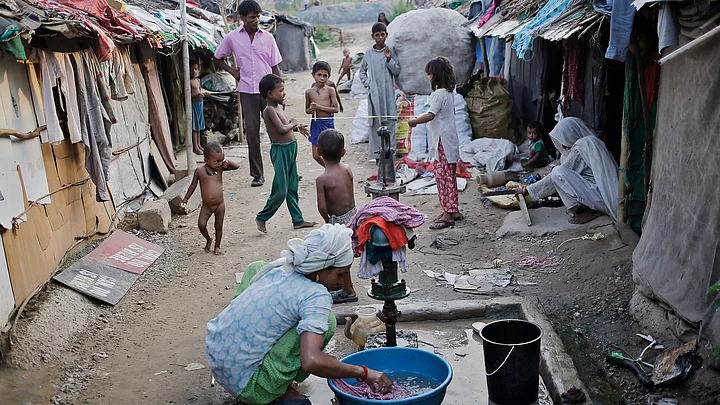Global Research firm Ipsos, in a survey done to mark World Refugee Day on 20 June, has found paradoxical trends among Indians as far as their perception towards refugees is concerned.
PARADOXICAL TRENDS
As per the survey, while 65 percent Indians agree with the statement that people should be able to take refuge in India and other parts of the world to escape from war or persecution, at the same time, 64 percent Indians also agree that we must close our borders to refugees entirely and we can't accept any at this time.
Notably, the latter figure of 64 percent is the highest among the 26 countries surveyed, with the average number of respondents agreeing to closing of borders and not accepting refugees across the survey being 40 percent. Behind India on this parameter are Turkey and Sweden.
Speaking on these paradoxical trends, Parijat Chakrabarty, Country Service Line Leader, Public Affairs, Customer Experience and Corporate Reputation, Ipsos India, said:
“This dilemma stems from India having to grapple with uninhibited exodus into the Eastern border, which has been a strain on the resources. Earlier on, even faced it in the Southern borders. At the same time, Indians have firmly stood with those victimised and have displayed their philanthropic side, when there have been glaring problems. [sic]”Parijat Chakrabarty, Ipsos India
REFUGEES COMING FOR ECONOMIC REASONS?
India also tops the chart in yet another parameter – with as much as 70 percent of Indians agreeing that most foreigners who want to get into the country as refugees aren't really refugees and come because of economic reasons or to take advantage of the welfare services. At 54 percent, the average of all the countries surveyed here is much lower than that of India's.
The survey also points out that 68 percent of Indians surveyed agree that most refugees who come to India will successfully integrate in the society. The figure is, again, the highest vis-a-vis other countries, with the average for all the countries surveyed being just at 38 percent.
As far as the above two trends are concerned, Chakraborty is of the view: “Government provides subsidy to economically weaker sections of society – so refugees can easily avail those with fake identity cards. Also, those who come from neighbouring countries – whether Bangladesh, Myanmar or Sri Lanka – since they seem to look like locals, they have managed to easily merge in the society."
The Ipsos report is based on the survey of 18,027 "online adults" between the age of 16 and 74 from 26 countries, conducted in April and May 2019.
(At The Quint, we question everything. Play an active role in shaping our journalism by becoming a member today.)
